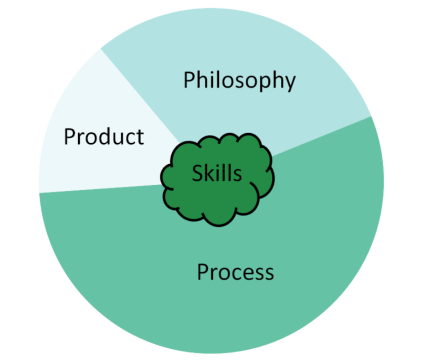PCP: Wisconsin's Model
The Wisconsin Person-Centered Planning (PCP) Model ensures that services are driven by the balance between the wants and needs of the service participant. It can be integrated across a wide range of service systems, settings, and programs for multiple populations.
Four components
Philosophy, process, product, and skills are the core components of the Wisconsin Person-Centered Planning Model. These core components are known as the 3Ps.
- Philosophy: A person-centered philosophy includes partnership, evocation, supporting autonomy, and empathy.
- Process: A person-centered process includes engagement, assessment, understanding, prioritization, and planning.
- Product: The product of person-centered planning represents meaningful outcomes.
- Skills: Person-centered skills include listening, asking, affirming, informing, supporting autonomy.
Our Person-Centered Practice Profile, P-02688 (PDF) provides more information on the core components and describes the key activities associated with each one.
Toolkit for professionals
Our Person-Centered Practice Profile provides a framework to observe a practitioner's use of Person-Centered Planning. There are three measurements for overall application: unacceptable use in practice, developing use in practice, and expected use in practice.
We've developed materials to assist with the measurement and observation of a practitioner's Person-Centered Planning practice.
- Person-Centered Practice Profile – used to guide implementation of Wisconsin's Person-Centered Planning Model.
- Person-Centered Philosophy Ratings – used by an observer to capture the practitioner’s overall person-centered practice.
- Person-Centered Planning Skills Observer Sheet – used by an observer to assess the practitioner’s use of person-centered skills within a specific interaction with their client.
- Person-Centered Planning Fidelity Review – used by an observer to assess the practitioner’s adherence to the Person-Centered Planning model, specifically the Process and Product.
- Person-Centered Planning Self-Assessment for Providers – completed by the practitioner, to reflect on their adherence to the Person-Centered Planning model.
View and download this toolkit: Person-Centered Planning Resources, P-02919 (PDF)

